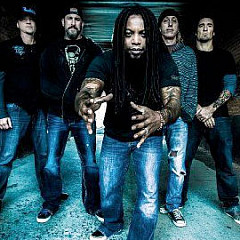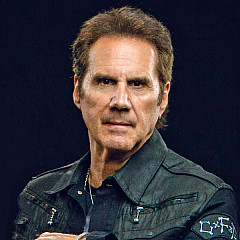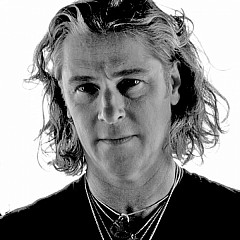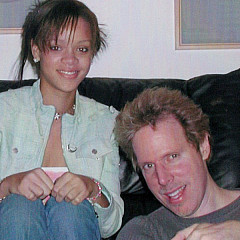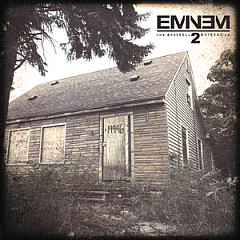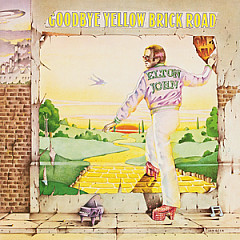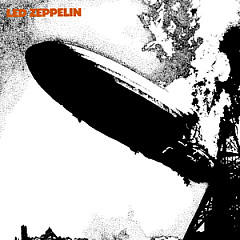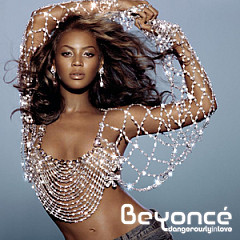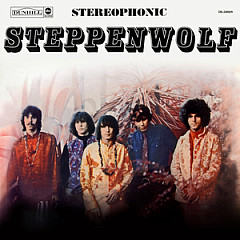Derek Shulman is the lead singer who in his post-Giant days became a record executive and signed Bon Jovi, Tears For Fears and Nickelback. His brother Ray Shulman played bass and went on to produce The Sugarcubes and Bjork. Here's our chat.
Ray Shulman: Yeah, we only ever sold albums before, now people have a chance to do individual songs. You're right, that would be fascinating to see which one of those albums actually proved to be the most popular.
Derek: Yeah, but the people who would know about it would generally be the fans that would be interested in the band anyway, and there are probably about 10 or 15 of them, and 5 of them are in the band.
Songfacts: Derek, you were saying you don't necessarily write songs. What were you guys doing?
Ray: Good question. I don't know what you'd call them, really. I suppose they were an attempt to make a song, but they were put together in kind of packages. The way we composed, I'd write a part, and then Kerry (Minnear) would write a part, and we'd write them individually. And then Derek would supply lyrics and help with the vocal line, etcetera, and then go back to Kerry, who'd arrange some vocal parts, and then come back to me to do different arrangements. So they were all kind of mixed up that way. I don't know what you'd call them either, really.
Derek: They're pieces of music, I guess.
Ray: We never sat down at our instruments and composed a song. Well, we did a little bit later on, but on the albums that are probably dearest to the fans, that's the way we went about doing it.
Derek: Yeah, there were never really verse, b section, chorus, verse, b section, chorus, middle… break, breakdown, and verse and out. I think they were probably more thematic in compositions, actually. I guess compositions would be - it's pompous, a horrible pompous word - but that's probably what they were. Because they were pieces of music, not songs broken down to 3 minutes, with the verse and chorus. So they were rarely that until towards the end, where we try to do that, and pretty unsuccessfully anyway.
Songfacts: Had anybody else been doing this kind of thing? I'm wondering how you even got the idea to write this way.
Ray: I don't know. That's pretty hard to tell, because initially, when we first started making music it was just experimental.
Derek: Yeah, we just did.
Ray: There was nothing to compare it to.
Derek: Ray, say if I'm wrong or not, but I don't think we sat down and said, "Let's sound like so-and-so, or let's be like so-and-so." It was basically me and Ray and my elder brother Phil at the time, breaking up the last band (Simon Dupree and the Big Sound), which we were kind of hamstrung with pop hit records around our necks. And getting musicians who would stretch ourselves to be as good as we could be personally, for each other, and then hopefully to garner an audience afterwards. So, as far as what kind of band we were, we didn't know, because we all came from diverse backgrounds. Ray, you want to give some of your background and everyone else's? I tend to prattle on, so you're probably more concise at this.
Ray: Well, okay, myself and Derek and Phil, we come from a very musical family: our dad was a trumpet player, he played in a jazz band. And his passion was jazz, so we grew up listening to bebop, which was the big music at the time, certainly for their generation. So that was in our house all the time, we had that as a kind of grounding. Then I went onto trumpet, then I went on to violin, and eventually, when I was home ill, and Derek had a guitar already, I took up the guitar.
Derek: I dragged Ray away from his classical training, you know. And I'll just say this, that Ray was being primed for the National Youth Orchestra of Great Britain. And I said, "No, you don't want to do that. You want to be in a pop group with me." And that's what happened. And we became the group called Simon Dupree and the Big Sound. And that's the band that broke up to develop into Gentle Giant.
Songfacts: I'm seeing how you guys had a very unique upbringing which allowed you to create this music that nobody else would think to make.
Ray: Yeah, and also because the first person recruited was Kerry, who was fresh out the World Academy, and he just graduated with a degree in composition, which actually at the time was quite rare for that particular degree. And he was taught by a contemporary of the American composer John Cage, a guy called Cornelius Cardew who was totally into experiment, and experimental in the same vein as John Cage, you know, the silence for half an hour and all that kind of stuff. And playing… one player who would actually stand in the box and play, and see how it influenced the other people. Kerry brought that fresh to us, and we were going, "That's fantastic. Let's try some stuff." So we were doodling around and see what would amuse and entertain us more than anything else.
Derek: Yeah, that's right.
Ray: And then Derek did exactly the same with the lyrics, and Phil kind of built up this mythology. I suppose the only thing that was in the air at the time was a kind of Tolkien thing, which was very big in the latter end of the '60s and '70s.
Derek: Kerry brought that amazing compositional aspect to us, and then we recruited Gary (Green), who came as a kind of teenager directly from the 12 Bar Blues School a semi pro musician. Not even knowing probably a fourth chord, probably E, A, and B, basically. But he was a great blues player who wanted a gig, and we could give him the gig. But also was a player who could pull off some of the things that we were trying to put together.
Ray: Gary has a blues inflection to everything he plays. Him playing the complicated parts we gave him was great, because that made it sound more unique than just playing a straightforward complicated guitar part.
Derek: And we went through a couple of drummers. Martin Smith was a very good drummer, but he left after the third album. And then Malcolm Mortimore for a few months. And we recruited John Weathers out of a group called the Grease Band. He was an incredibly solid back beat drummer who could keep the sort of straight and narrow pathway when we were doing our experimental composition - not experimental, that's a terrible word – very structured compositions. But he kept it in a line where it sounded at least semi listenable.
 Songfacts: It's interesting you said "experimental is a terrible word." How do you feel about being described as "experimental," "progressive," "complex"?
Songfacts: It's interesting you said "experimental is a terrible word." How do you feel about being described as "experimental," "progressive," "complex"? Ray: We can't really escape from it. That was the era that was called progressive music. And the weird thing is in any other field apart from music, "progressive" is a very positive term. For some reason, I think it certain quarters, progressive was seen as too pompous and overblown, and it should be blown away, and all that kind of stuff. But it was music of its time, and really music has developed ever since psychedelia in the late '60s, people just wanted to more and more push the boundaries of what they call popular music. And starting from the early '70s, we were on that wave.
Derek: We were pushing ourselves musically, learning from each other and getting better at what we did by learning from each other. And then going on stage and putting out what we've learned, to see if the fans liked it.
Ray: We always did it with a kind of sense of humor as well.
Derek: That's right.
Ray: We took the music very seriously, but we never ever took ourselves very seriously at all. There's one time when we had the slide show – and I think we'd had some kind of criticism or something where the word "pretentious" was used, and we used to project that slide up that said "pretentious." And it amused us and amused the audience just to see the irony of the whole thing.
Derek: Ray's right. We believed in what we did, but we weren't pompous. That's the word. I mean, I don't think we ever tried or wanted to be pompous and pretend we were the LSO, or the New York Philharmonic. We were just a group having fun playing instruments and composing interesting pieces of music, and if the fans enjoyed it – even better. And if we got paid for it, even better than that.
Songfacts: When you guys heard "Owner Of A Lonely Heart" by Yes, did you think about reforming the band and getting some synthesizers?
Ray: No, not really. The bands who were around at the same time like Yes and Genesis went on to great pop success, and if anything toward the end of our tour we tried, and that's why we compromised a bit on the music to kind of cross over to that kind of audience, but then we just thought to ourselves, it's folly to do that. It's not in us to do it. And we just ended where we ended… there's no resentment or anything like that.
Derek: No, not at all.
Ray: Myself and Derek went onto other things, both in music, that we didn't really look back and say we should reform to do that kind of thing. We weren't those kind of songwriters anyway.
Derek: And when you talk about that song in particular, and you talk about the group Yes, it was really Trevor Horn with his knowledge of production and synthesizers. And really, when you boil it down, the guys in Yes, even though they were probably very good, it was more Trevor Horn than Yes. With us it was always the group producing what we did, whether it was bad, good, or indifferent. So I don't think that would have influenced us in the slightest. Would we have liked to have had a hit song? Yeah, probably. But we didn't, and we moved on from there.
Songfacts: You guys on your own, you both found some success bringing popularity out with other bands. For example, Derek, you signed Bon Jovi.
Derek: Is that a blame, or is that a credit? (laughing)
Songfacts: I actually love Bon Jovi, but they're about as different from Gentle Giant as I can imagine. I cannot imagine a more different sound than, like, Bon Jovi's first song – I think it was "Runaway" – and then you listen to Gentle Giant, and it's the complete opposite.
Derek: Well, that's true. But you have to remember, we were in a pop group who had a fairly big pop single ["Kites"]. I enjoy all kinds of music. In fact, I was asked this week one of my guilty pleasures, and I said AC/DC and ABBA. But with someone like Bon Jovi, I saw - having dealt with the business side of it as well - the potential of marketing and promotion as well as music. So that aspect of it I learned quickly by having a job in the music business, as opposed to being a musician. I guess I inflicted Jon Bon Jovi to the unsuspecting public, and 25 years later he's still around and bigger than ever. So what can I say? I take full credit, and I take full blame.
Songfacts: Do you like Bon Jovi's music?
Derek: I like some of the songs, yeah. I think the third album, Slippery When Wet, was a really well-constructed pop album. When it was done, I knew in my gut that it was gonna be this big. Because it was the right time, the right place, the right artist. And I had learned some of the business side from being in the business that long, and also having a musical background, I knew that this was gonna be that big. And in fact I also put them together with a co-writer called Desmond Child, who could write great choruses. Here's me looking at Desmond Child and I'm thinking, Man, I wish I would have had choruses like they could write. But you know what? We didn't, and that's it. So you continue to learn and you continue to move on in your musical future. I don't want to look back and say, "This is it." Because I'm always looking to see and hear whatever's new out there. And sometimes something which is bizarre or out there, or totally pop, will enthrall me and I'll say, "I like this." And I think Ray's probably the same way. Ray, correct?
Ray: Kind of, yeah. I think what Derek recognized more than anything else in a band like Bon Jovi is their own personal ambition. And that's hard to define.
Derek: Well, you've seen it. You saw it, too, Ray.
Ray: Well, yes. Because I know through producing that you get a feel for some artists who have fear of completion because they just don't want anything to come out, and then you get some artists you just know are gonna click, because apart from the talent and everything else, they have the public connection, and they have a certain ambition. And I think Derek recognized that with Bon Jovi.
Derek: Yeah, absolutely right.
Ray: The fact that he was able to connect to them with certain things, it just showed the mentality. Now, when we were in the band, we didn't have that at all, I know. But I don't think it entered our heads to be that way. I don't think we had a lot of communication with the record company in that way.
Derek: No, none, actually.
Ray: They didn't know what to do with us. They kind of left us to our own: deliver us an album, we know it sells well.
Derek: Well, again, you're right, Ray. I saw the drive and the ambition of Jon Bon Jovi, despite the fact that he could only sing 5 notes and most of them out of tune. However, I could see the drive that he had in him to make it. And the same type that you probably did with Bjork and the Sugarcubes, Ray.
Ray: You just know that some bands are going to click, and there are quite a few artists there who have too much fear of failure.
Songfacts: To ask your brother's question, what are some of the acts you've worked with that you've seen that connection you speak of?
Ray: The Sugarcubes definitely had that whole thing, and the Sundays, equally so. There was no fear of going for the big deal, they were going to make a great record, and they were receptive to things that you brought to it.
Songfacts: And, Ray, your brother listed ABBA as a guilty pleasure. Do you have a guilty pleasure band?
Ray: Oh, a lot, really. I love modern R&B, all that Timbaland type production. I find it incredibly inventive. I love Britney's productions, I think the way she makes pop records is incredible. Her voice really suits it, but it's the musicians, the modern production teams of today, the kind of pop productions, they're incredible musicians and inventive. When you get Xenomania, who do Girls Aloud and all those kind of bands, that's clever production - inventive and modern. That kind of thing would be my guilty pleasure.
Derek: We haven't spoken about it amongst ourselves, but now Ray's speaking about it, I actually listened to a couple of Timbaland productions just recently. And I realized that his verse chorus and B sections, they're in the same key all across the board, there's no change of chord. This is a purely musical aspect of what I'm talking about, but it's kind of interesting the way he structures things, and gets a great song out of something which is pretty basic.
Ray: And the minimal kind of instrumentation.
Derek: Exactly that, very minimal.
Ray: He usually starts off with a sample of some kind, and in a very Jamaican way, they build a kind of rhythm, go in and do it from there. I think it comes out really great.
Derek: Actually, you're hearing something which we haven't even spoken about personally apart from right now, but I just listened to it and I thought, it's a very tight structure, but it's not based on lots of chords flying around into B section choruses.
Songfacts: Is that similar to the way you composed the Gentle Giant songs when you're talking about how you start simple and you just keep adding layers?
 Ray: Yeah, to a certain extent, that's probably true. Kerry came from a formal composition background. Kerry could actually sit down with a manuscript paper in front of him, and write an orchestration down. Often, on the more complex vocal arrangements, he'd do that for us. But apart from that, the only technology available to us was a sound-on-sound tape recorder, where you basically recorded one instrument, and then kind of swapped its track, going onto another. So it was very basic technology, but that really was one part at a time. And then you'd add something different and just see what happened, see how they interacted with each other. And you'd say, "Oh, it's an interesting idea there." And then you develop that bit.
Ray: Yeah, to a certain extent, that's probably true. Kerry came from a formal composition background. Kerry could actually sit down with a manuscript paper in front of him, and write an orchestration down. Often, on the more complex vocal arrangements, he'd do that for us. But apart from that, the only technology available to us was a sound-on-sound tape recorder, where you basically recorded one instrument, and then kind of swapped its track, going onto another. So it was very basic technology, but that really was one part at a time. And then you'd add something different and just see what happened, see how they interacted with each other. And you'd say, "Oh, it's an interesting idea there." And then you develop that bit.Derek: Huh, that's probably right. Actually right. Yeah, I don't think there's too many times where we started off with a chord.
Ray: No, there were always some musical phrases.
Derek: Right, there were phrases.
Ray: We never did a kind of chord sequence, like a traditional songwriter would do.
Derek: Right, there were always parts and sequences, and/or themes.
Ray: In fact, someone the other day, they asked us, "Did you deliberately write in awkward time signatures?" And I had to think about it. I said, Well, we didn't write often in the same time signature. We wrote musical phrases. And if they happen to fit a certain time signature, so be it. But it wasn't, Oh, we're gonna write this song in 7/8, we're gonna write this song in 5/4. I think very few of our songs actually do that. They'd change all the time. Luckily, later on we had a drummer who'd say, "Oh, there's a bar of 7, and a bar of 5, that's 12 beats. I can do like that, and play 4/4 right the way through it,"
Derek: Yeah, sometimes very confusingly, by the way. Because then I couldn't get a downbeat or upbeat. It was like, Okay, where is the 5? Where does the bar start? But that's what he did, and it was kind of interesting. I even listen now to some of the things we've done, and don't know where the actual phrase starts.
Songfacts: Derek, tell me about coming up with the lyrics for these songs.
Derek: They were done at the same time sometimes, or sometimes before the song was written. Certain songs or certain albums were kind of thematically put together lyrically at the same time or just before the album was written. Like The Power and The Glory, for instance was written on a theme of the corruption of power, and how it can affect people. So putting those lyrics together as a thematic kind of concept - I use the word "concept album" - I think affected the way the songs were written by Ray and Kerry, for the most part, and occasionally I'll put in a little phrase or two myself. But sometimes the sound of the song would influence what we sang and wrote about lyrically. I don't think it was too many boon and June songs that we wrote about. It was more about expressing our views on life and personalities, and a little more outward looking, as opposed to stuff that was trite, if you like. Again, the pomposity part I hope was not there, either. We tried to write songs which were meaningful, but not silly.
Songfacts: What's an example of one of the songs that you feel is a very meaningful song?
Derek: It's kind of funny to reflect on this. Songs like "Experience" I think are fairly good. I was thinking about having an experience, and looking back and realizing that we'd done certain things in a different way, and now we're older and we knew that the ways of what we were when we were youths were things that we learned from. I think I was only 20-something when we were talking about being experienced. So it's funny, but I think some of the lyrics, writing with Phil and afterwards by myself, or with some help with the guys as well, were fairly good. We weren't monosyllabic dumbasses, as it were – excuse me.
Derek: Yeah.
Ray: And Derek would just take that subject and a certain song would strike him, "Ah, I could write, I can bring out that."
Derek: Yeah, it was basically about what was going on in the band, some of the time. But also what was going on in the world at that time. It wasn't a sociological or social outlook, but it was certainly written about in our lyrics.
Songfacts: You explained that The Power and the Glory had a theme. Can you talk about the theme of one of the other albums that stands out to you?
Ray: Certainly the earlier albums were conceptual. This is when Derek was writing with Phil. Both Three Friends and Octopus had certain themes. Three Friends was…
Derek: That was almost a story.
Ray: That was a story about three school friends, and how they went their own ways. And each song was developed very much that way, even to the extent that the song "School Days" starts off with the sounds of the schoolyard playground in England. We started off using the sound effects of the schoolyard so it would be very nostalgic, and that's a whole song about being at school together, and how these friends went their own different ways. One goes into manual labor, one goes into clerical work, and one is an artist. Even finishing off with – I think "Peel The Paint" was part of –
Derek: Yeah, uh-huh.
Ray: It's saying, basically, underneath it all, they're still the same three children, with the same competitive kind of natures.
Derek: Yeah, you've got this exactly right, Ray. I guess it's a story for everyone in the world. Kids at school, when there's no façade, or there's no buildup of expectations. You move on through your life and you divert your energies in your life, and your jobs and your families to different things. But underneath everything else is still that kid who you can relate to in the basic level. And that was what that album was about. Most albums had some kind of theme running through them that tied the songs together to a degree. There weren't too many albums or too many songs or pieces of music that were totally diverse. There were three or four albums that had a real concept, but generally each album was tied lyrically and musically to the times, and the singular effort that we were trying to get together.
Songfacts: What's the theme of Octopus?
Derek: And the people surrounding them.
Ray: Other people surrounding them. But actually it didn't end up – I thnk one song actually was written about Gary, "The River" –
Derek: Right.
Ray: He had a very hippie free-flow kind of personality. So that was about him.
Derek: "Dog's Life," of course.
Ray: And "Dog's Life" was written about the road crew, which may sound very insulting.
Derek: (laughs) Because this is a dog's life, that's what they all said, "We've got a dog's life." And yeah, you do.
Ray: I think we got about three songs into it and then kind of abandoned the theme, wasn't it?
Derek: Yeah, it was very loose.
Ray: And then Phil kind of went more into the literary world with "Knots."
Songfacts: Guys, the last thing I have for you, I'm wondering, from a non-musician standpoint, if you can explain what you're doing that is so complex.
Ray: Well, it's complicated in a rhythmic sense, where it's not in a regular meter, it's not the most traditional pop group/rock group playing 4/4, one, two, three, with a back beat on the 2 and the 4. We never even entertained doing that. We worked in musical phrases, and then other musical phrases that kind of were counterpoint to those phrases, and then lots of different polyrhythms in there. And we never used even a melody line. The melody lines were always meant to be another instrument.
Derek: Right. Ray actually brought up something I was going to bring up there, that the vocal lines were only parts of the overall score. They were thematic. And the pieces of music weren't songs, per se, they were kind of pieces of music and compositions. And they were thematic as well, so the vocal lines and the musical parts were counter to each other as opposed to having a vocal line on top of a chord pattern. So I think in that respect we were quite different to even the contemporary bands of our time that were plugged into this progressive title, where we were pretty structured in a thematic sense, as opposed to playing over chordal patterns and pads on the keyboard.
We spoke with Derek and Ray on December 12, 2009. Most of their catalog is now available digitally on Amazon and iTunes. For more, check out the Gentle Giant Home Page.
More Songwriter Interviews

